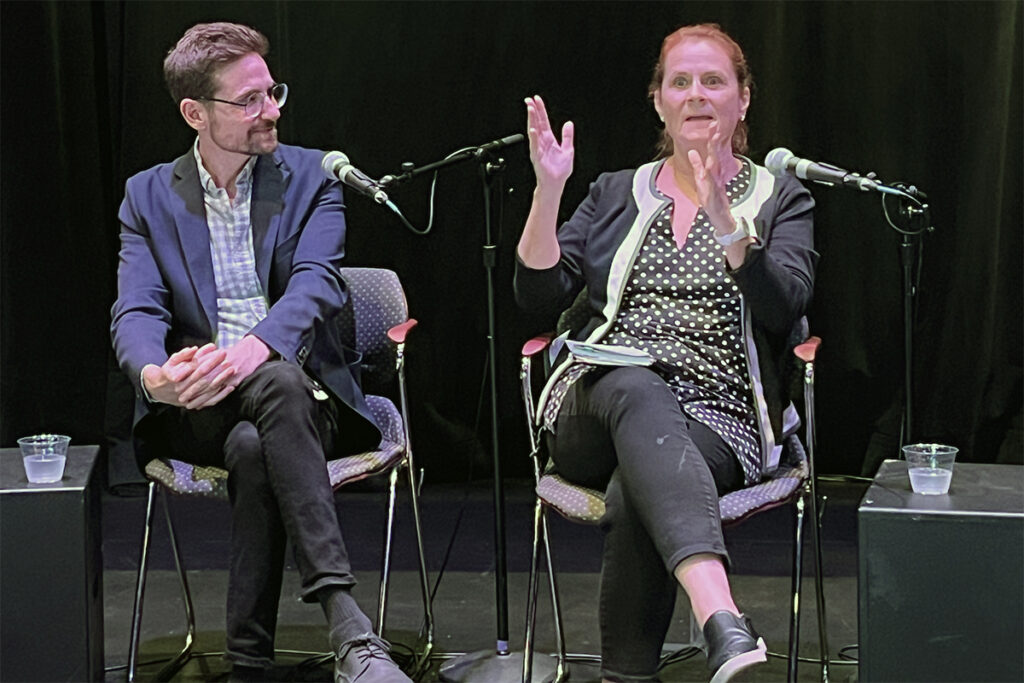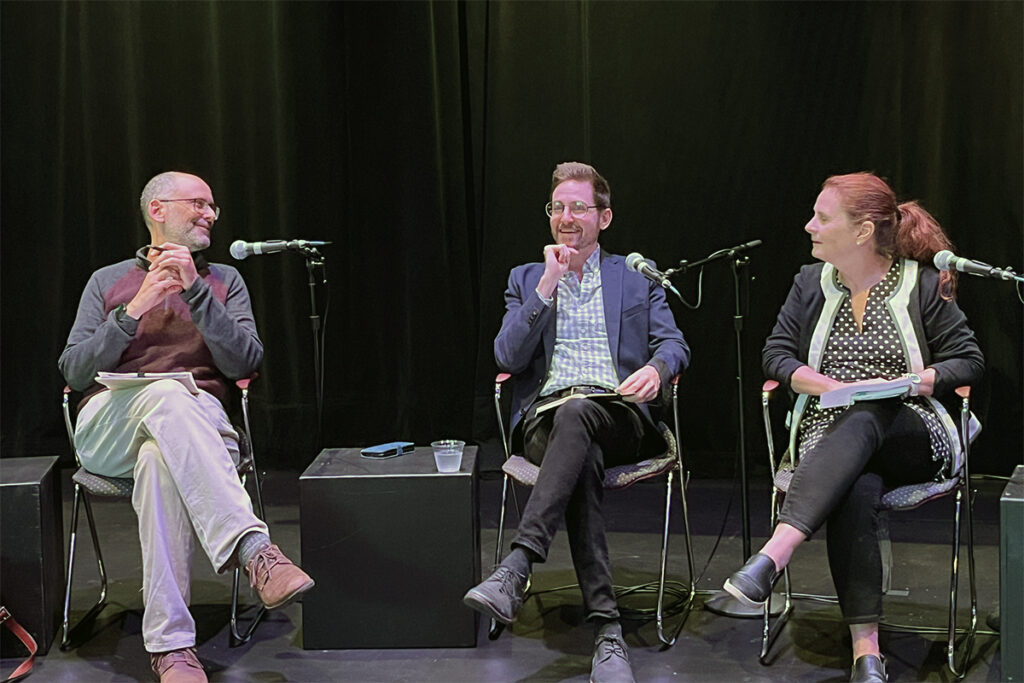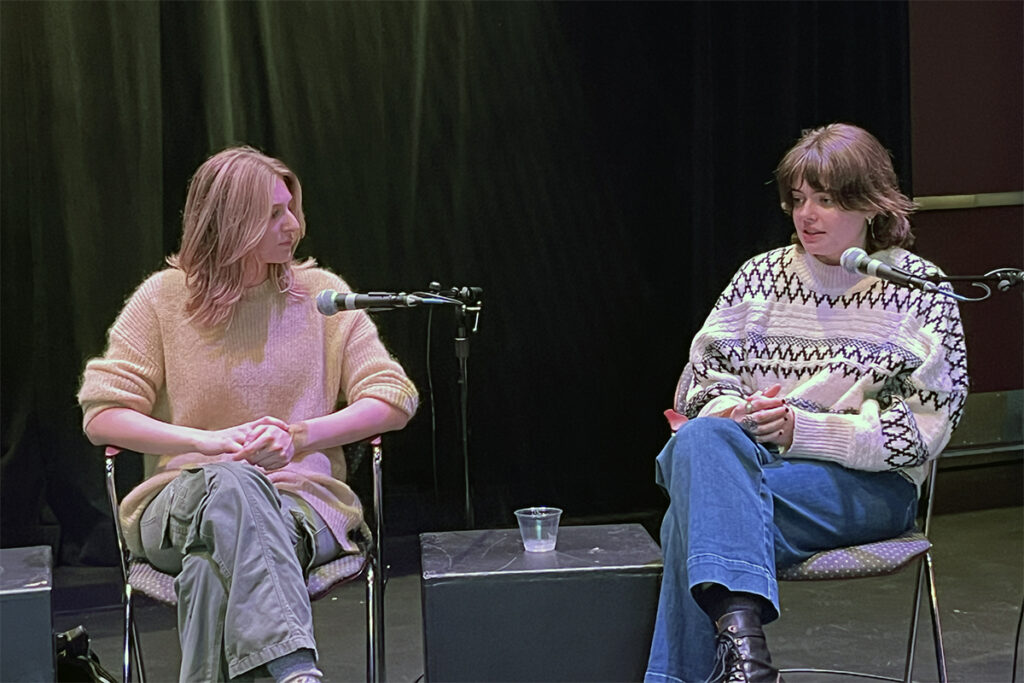Emerson Stage’s ‘POTUS’ Explores Political Humor’s Social Impact
In a time of political upheaval and division, humor has consistently acted as both a reflection of society and a source of relief, providing critique, catharsis, and a means of navigating complex issues.
This was the focus of a lively discussion held at the Jackie Liebergott Black Box Theatre on the eve of Emerson Stage’s first show of the season, POTUS: Or Behind Every Great Dumbass Are Seven Women Trying to Keep Him Alive on September 25-28.

“Political humor is an integral part of our performance history from its early inception throughout the globe from ancient Egypt, Greece, China and beyond,” said Performing Arts Professor and Assistant Dean Joshua Polster, who moderated the conversation. “It can be used to redirect emotions, as well as rehearse, critique, and reshape ideologies and societal conventions.”
The panel included Performing Arts Assistant Professor Matthew McMahan; Patrice Oppliger, past president of the International Society for Humor Studies and Boston University professor; and POTUS cast members.

Polster asked the panelists how they define political humor.
Oppliger provided a media-focused analysis of the shift in television comedy from a neutral approach to the explicitly partisan political humor that dominates today’s late-night shows.
“Take Johnny Carson on The Tonight Show, for example—his approach was more lighthearted, with jokes aimed at both sides,” said Oppliger. “We went from Carson to so many of today’s late-night shows that focus heavily on targeted political humor that directly engages with the national stage and the Republican-Democrat divide.”
McMahan referenced the history of comedy, going back to toga times.
“All comedy is political. Even if it is trying to be apolitical, it is being political,” McMahan explained. “I tie it back to the Greek root of the term, which is polis, and it is the public, the community, and to perform in front of people is an act of politics.”
McMahan elaborated on how good political comedy responds to the audience’s political pain.
“I think the reason political comedy can be funny is because of tension,” McMahan said. “A comedian’s job is finding that tension and trying to really exacerbate the tension to where you only have two responses, a tragic response, crying, or a comic response, laughing.”

POTUS Assistant Director Lara Brinkman ‘25 echoed McMahan’s described how the play’s political discussions initially provoked somber, disheartening feelings, but those emotions were due to the weight of its themes.
“For me, it [POTUS] became depressing, but then it circled back around to funny because of how depressing it was,” said Brinkman. “I think that is what political humor does really well – it finds the timing where it goes so far that it eventually becomes funny again.”
Sydney Schiller ’25, who played Bernadette in POTUS, shared how the play critiques and undermines patriarchal structures through humor as a form of resistance and empowerment.
“[In POTUS,] the president is built up to be this incompetent disaster on two legs, and our job is to try and take the winds out of the sails a little bit,” said Schiller. “What I love about political humor is that it brings these awful people down a peg, and that is what it feels like we’re doing here – we’re knocking the patriarchy down a peg.”
Categories